Hub It Up!
13 nov. 2019
8min
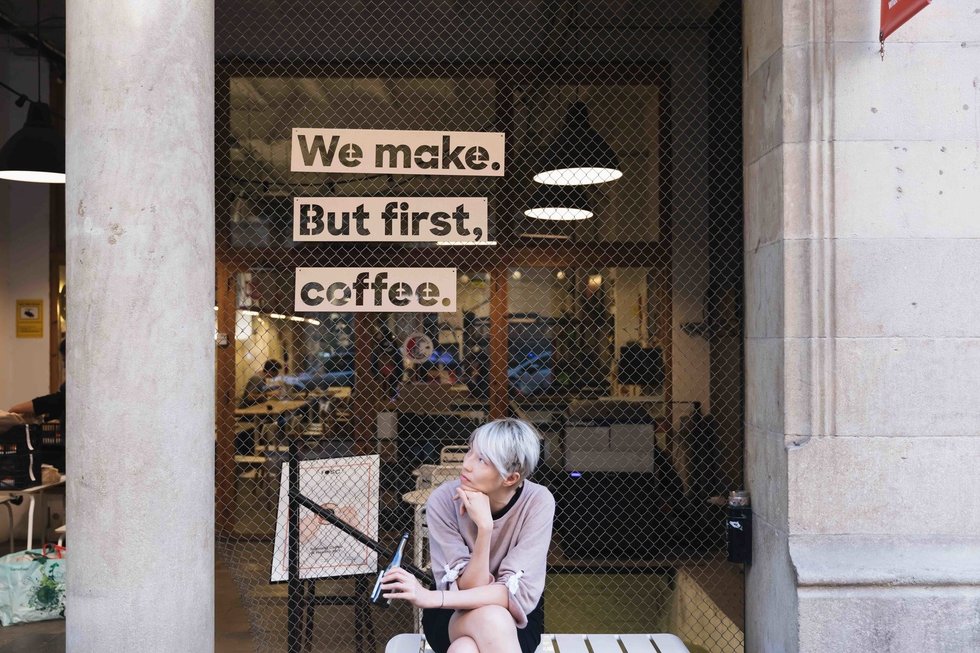
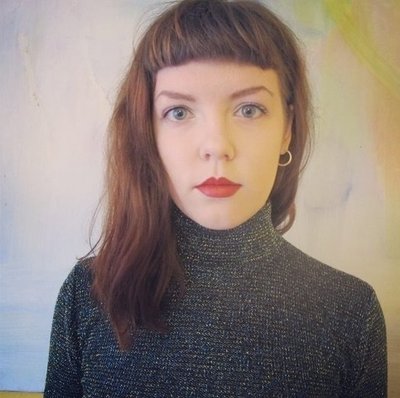
Journalist, scriptwriter and Londoner, living in Barcelona. She has a Masters in Political Science.
Barcelona seems to be hard at work, selling itself as the future Silicon Valley of Europe. With hundreds of coworking and hub spaces to be found throughout the tiny city, you’re as likely to stumble across a gang of international entrepreneurs chatting over their laptops as you are a tapas bar. There’s a plethora of options, with techies, innovators, researchers, and creatives making their own spaces to collaborate and build together. Simply find the hub most suited to your skill set, pay the monthly membership fee, and make use of the instant community of like-minded, smart, talented people around you, who will all be keen to help you with your projects and get your advice on theirs.
We spoke to Cecilia Tham, a regular speaker at tech conferences and TedX and the cofounder of Makers of Barcelona (MOB), a coworking, collaborative, creative hub with more than 400 members. Launched in 2011, it now has three hub locations, as well as a FabCafe, a 3D-printing-shop-cum-cafe. We wanted to know what it takes to open a hub, and why Tham chose to settle in Barcelona 15 years ago, after living and working all over the world.
Hi Cecilia! Let’s start from the beginning: can you tell us about your childhood?
I grew up in a place called Macau, which is a former Portuguese colony in southern China. I went to a Catholic school with German nuns! It was a very diverse culture and a tiny city. I was a total pain as a kid, like most kids. I was very “internal,” so I would stare at the ceiling all day long and imagine living in an upside-down world. Or, when I went swimming, I’d swim down to the bottom of the pool and look up and imagine that the top of it was actually the bottom.
That’s quite a common trait with creatives, isn’t it, spending a lot of time in your imagination as a child?
Exactly, and I think a lot of kids are born that way and then, little by little, your creativity is chipped away. And little me kind of got lucky and stayed in that creative mode, but most kids grow up and out of that role, which is a pity. I still love that world.
And as a child, you’re kind of told you can either be creative or into science. Either you do math or you do art—you can’t do both.
Right, which is a lie. Most scientists are actually very creative. Art and math are very connected. One of my contemporaries who I look up to is Neri Oxman, an MIT Media Lab professor. She published this piece that I often refer to that’s called “Age of Entanglement”—in it, she talks about this amazing map that she calls the cycle of creativity and how, in this age, we have to look at the arts, design, science, and engineering to get a perspective of what creativity is. It’s not just design, it’s not just art, you actually have to look at all aspects of society to understand creativity. So that’s kind of my foundation.
“Neri Oxman talks about this amazing map that she calls the cycle of creativity and how, in this age, we have to look at the arts, design, science, and engineering to get a perspective of what creativity is.”

Can you tell us a little about your professional background?
When you’re a good little Chinese girl within Chinese culture, you’re really only given the options of being a doctor, a lawyer, or an investment banker, so I chose to be a doctor. I studied medicine and I tried really hard, but when I took my premed I ranked at 3%, so there was no way for me to get into medical school! I majored in biology and I minored in arts, so I thought, why not change completely and try architecture? That summer I did a six-week course in architecture and then took a year off and worked at the most amazing architecture firm in Atlanta, went to Harvard, and got my degree—I absolutely loved it! Architecture is like this integrated spectrum of art, engineering, design, and science.
Then, in 2004, I came to Barcelona, and during my first years here I was just jumping from one architecture job to another. Once I’d had my kids, I did the stay-at-home-mom thing, but I realized that wasn’t all I wanted to do. One day, my ex-partner randomly bought me a sewing machine. As an architect I love making stuff but I’d never sewn before, so initially I was like, “What century is this?” But the first time I used the machine, it was intensely gratifying. I was like, “Wow, I made this!” I started making clothes and then hacking cameras, and then looking into 3D printers and then coding, and I started to realize that there is an enormous amount of resources out there to learn from, whether it’s an online course or a YouTube video.
I founded MOB in 2011. In 2016, I decided I needed to upscale and so went back to the US and did an intensive course, where I met 90 other amazing people. That particular program was focused on climate change and how to apply radical technologies. It was an immense eye-opener. After that, I realized I wanted to dedicate my time to solving global challenges with radical technology. So now I’m a social technologist at the innovation facility Alpha, too.
Architecture, design, biology, tech… You’re a “switch expert.” Why have you ended up working in so many different industries?
I’ve always thought that my strength is my ability to synthesize. I think creative people can synthesize well. I can’t do it with words, but I can in terms of concept and in terms of ideas. So it doesn’t really matter what the job or position is—if you give me a couple of different things, I can piece them together and make something new. This is what creators, artists, designers, and architects do.
I also think this is going to be the number one skill set in the coming years. We are transitioning into roles that have yet to be defined, and we don’t know what they are, so we need to have the ability to quickly think, “What cards are in the air right now?” and make something of the situation. The world is changing, and if you’re lacking in that ability, then you’re going to lag behind.
“We are transitioning into roles that have yet to be defined, and we don’t know what they are, so we need to have the ability to quickly think, “What cards are in the air right now?” and make something of the situation.”

Can you tell us about the birth of MOB?
After I got my sewing machine, I realized that every time I made something, my self-confidence increased. And then I was like, “Why am I making stuff alone when I could be making stuff with other people?” And that’s where the idea for MOB came from—a place where people come together and make stuff. That was eight years ago—we recently opened our third location and have over 400 members now.
How does it work exactly?
When you look at a “normal” business, how does it start? You have a founder and maybe a cofounder and they sign something, and then you get an employee and they might sign a contract for a year, two years, 10 years. But we don’t really have “employees,” we have a community, coworkers, partners. At MOB, there’s a 20% rotation every month, which means that we have a constant influx of new people, new projects, new ideas. It gives us inspiration. A company can’t have that kind of rotation, because it needs stability and expertise and structure. But the two can go hand in hand. A company needs that kind of flexibility, and these communities need stability. So what we’ve built is a link between the grassroots communities and companies so that they can work together.
“We have a constant influx of new people, new projects, new ideas. It gives us inspiration. A company can’t have that kind of rotation, because it needs stability and expertise and structure. But the two can go hand in hand.”
Why did/does Barcelona need a space like MOB?
This whole new movement of open innovation needs spaces, like makers’ spaces or coworking spaces. They are accelerators and mediators between large corporations and individuals and freelancers. Barcelona probably has the highest density of coworking spaces in the world now, it’s huge. There’s also a very driven culture of design and art here. I don’t need to sell Barcelona—I mean, the sun, the weather, the mountains, the sea, the wine! In how many cities in the world can you go surfing on a Saturday and skiing the next day? San Francisco is one of these tech hubs and Barcelona is the next. I’m not comparing it to Silicon Valley—it has its own ecosystem with its own limitations, but it has amazing qualities other cities don’t have.
When we started MOB, coworking was unheard of. It was never about real estate—I started it because I wanted to make stuff with other people. The whole entrepreneurship thing was just beginning to surface in Barcelona then. We wanted to be more than just makers, though—it could be businesses or websites or projects, with a sense of making a community come together. We can make more together as a collective.

What have been the main challenges? Did you get help from anyone?
We got very lucky. I asked Barcelona City Council for funding and they said no, but they said they happened to be subsidizing a business loan at a bank. So we got an amazing deal with 0% interest for the first five years.
On a global scale, I’d say it’s getting easier and easier in Barcelona to do something like this. You still have to go through an annoyingly enormous amount of paperwork and find the right people to hire but, I think, on a European level, it’s much more acceptable. It depends where you’re comparing it to. The ecosystem is on a par with Berlin’s or Paris’s. Funding is rising. You can get world-class developers and designers here, really top-notch talent. And the administration needs to get it together and get on a par with somewhere like Paris, where there’s been enormous investment in tech and it’s paying off.
“It’s getting easier and easier in Barcelona to do something like this. The ecosystem is on a par with Berlin’s or Paris’s. Funding is rising. You can get world-class developers and designers here, really top-notch talent.”
Did you have to learn the language?
Growing up I spoke Chinese, English, and Portuguese. I don’t speak Catalan. And when I started learning Spanish, I forgot every word of Portuguese. Learning Spanish as an adult is hard. It took me a while to roll my rs! I took intense Spanish—four hours of class every day for two months—but this was in Argentina, so when I turned up here, people were confused by my Argentinian Spanish with an American accent! It took me two years to learn how to speak it properly. It makes your life a whole lot easier if you know the language.
You also cofounded AllWomen—the first artificial intelligence training campus for women—and are quite an activist for encouraging and supporting women in tech. Can you tell us about it?
Well, after opening MOB, it just kind of never ended. After that, we opened FabCafe, which is a 3D-printing space and coffee shop, and then a couple of start-ups that didn’t take off, so we had to kill them, which is part of the process, right? And then, last year, we started AllWomen.tech, which is a tech training course for women, by women. I’m so fed up of going to conferences and seeing 18 male speakers in a row, you know? So we started the training school and we’ve had an amazing turnout in terms of students and interest from companies.
How do you balance your work/home life without getting burnt out?
I don’t have a separate home and work life. I tell my kids about the machine economy. Maybe they’re not sure what I’m talking about! But if I can make my eight-year-old understand, then my job is done, really. Everything for me is a learning experience, so I have no problem bringing work home or bringing home to work. We’re transitioning to an attitude toward work that is less about the separation of it and more about fulfillment. If what I’m doing is fulfilling, then my work is my life.

Inspirez-vous davantage sur : Work in Barcelona
Moving to Barcelona for work? Navigate the job jungle in this international hub with our insider tips, advice from locals and insights from industry experts.
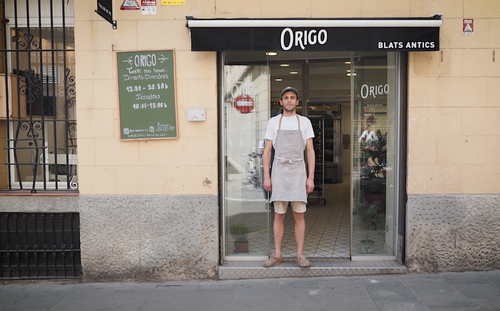
Work in Barcelona: François
Originally from Belgium, he left his job at Google in San Francisco to move to Barcelona with his wife, where he decided to open his own bakery.
11 déc. 2019
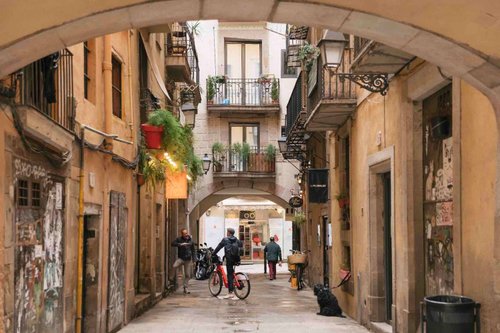
Work in Barcelona
Considering relocating to Barcelona? Let’s have a look behind the scenes to understand what it takes to be a happy expat in Barcelona.
11 déc. 2019
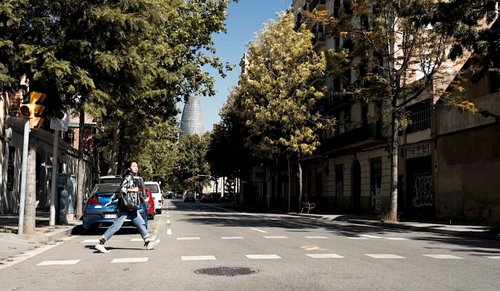
Work in Barcelona: Amy
Born and raised in Canada, Amy moved to Barcelona to change career by retraining as a software developer. Here's her expat experience of the city.
11 déc. 2019
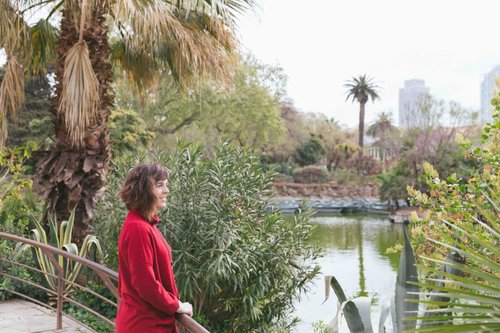
My Barcelona: ‘The city is so much richer than it seems’
For Anaïs, Barcelona is such an enticing city that she has made it her home not once, but twice.
13 nov. 2019
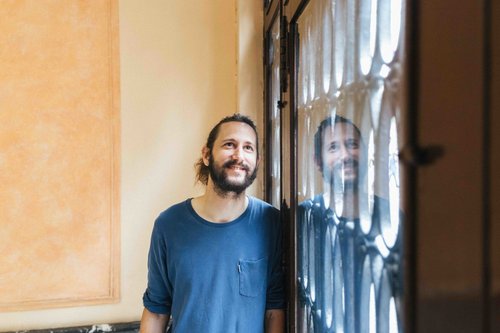
My Barcelona: ‘It’s the Silicon Valley of Europe’
Frenchman Erwan Riou originally qualified as an architect, but after a stint in Brazil, the 33-year-old started retraining as a programmer...
13 nov. 2019
La newsletter qui fait le taf
Envie de ne louper aucun de nos articles ? Une fois par semaine, des histoires, des jobs et des conseils dans votre boite mail.

Vous êtes à la recherche d’une nouvelle opportunité ?
Plus de 200 000 candidats ont trouvé un emploi sur Welcome to the Jungle.
Explorer les jobs